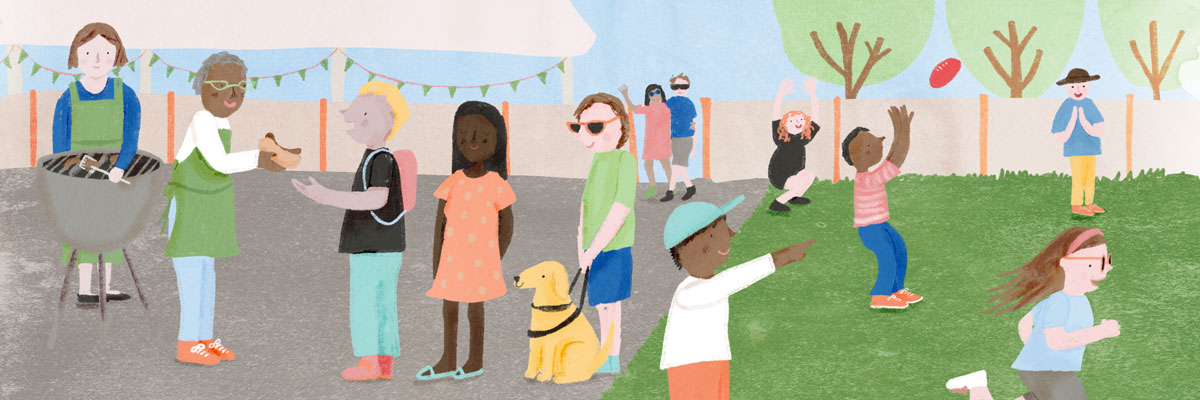By Education Services Australia | 3 Aug, 2021
As students continue to face disruptions to their learning, it’s more important than ever that educators take a proactive approach to supporting their students’ wellbeing.

Illustration by Jess Racklyeft; © Education Services Australia
‘The Student Wellbeing Hub has developed the Building student resilience course to provide evidence-based support for teachers wanting to build resilient classrooms in the face of adversity,’ said Andrew Smith, CEO of Education Services Australia. ‘Over the past 18 months, we have seen a rise in mental health concerns as students across the country face new challenges and disruptions to their learning and everyday lives.’
‘As we see ongoing disruptions and transitions to remote learning across the country, educators and school leaders must continue to manage the impact of the COVID-19 pandemic and ensure that students receive proactive support for their wellbeing,’ he added.
Building student resilience is a self-paced professional learning course available to all. It aims to provide educators and school leaders with the tools needed to understand resilience in the face of adversity, and enable them to take a proactive approach to student mental health and wellbeing.
Developed in partnership with community psychologist Lyn O’Grady, the new course draws on elements of the Australian Student Wellbeing Framework to help educators understand how themes of resilience can complement existing social and emotional learning activities in the classroom, and how it connects to their own mental health and wellbeing.
‘Resilience helps students understand how to get through these times, draw on their inner strengths, work together to support each other, and strengthen relationships so they are not alone,’ O’Grady explained.
The course consists of three modules:
The Student Wellbeing Hub, a website developed by Education Services Australia for the Australian Government Department of Education, Skills and Employment, introduced the new self-paced professional learning course as part of its growing repository of COVID-19 support resources.
The course is supported by recent research on the impact of local and global disasters such as the COVID-19 pandemic and Australian bushfires on student resilience. It draws on the work of Michael Ungar, Principal Investigator for the Resilience Research Centre at Dalhousie University in Halifax, Canada. Ungar presents a resilience framework for responding to disasters, with a particular focus on COVID-19, which details three different phases in the process toward resilience: recovery, adaptation and transformation.
More resources to help educators understand and support student wellbeing are available on the Student Wellbeing Hub.